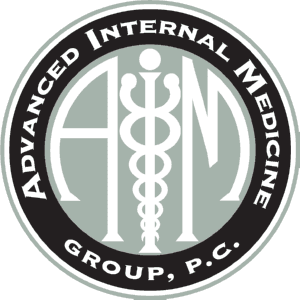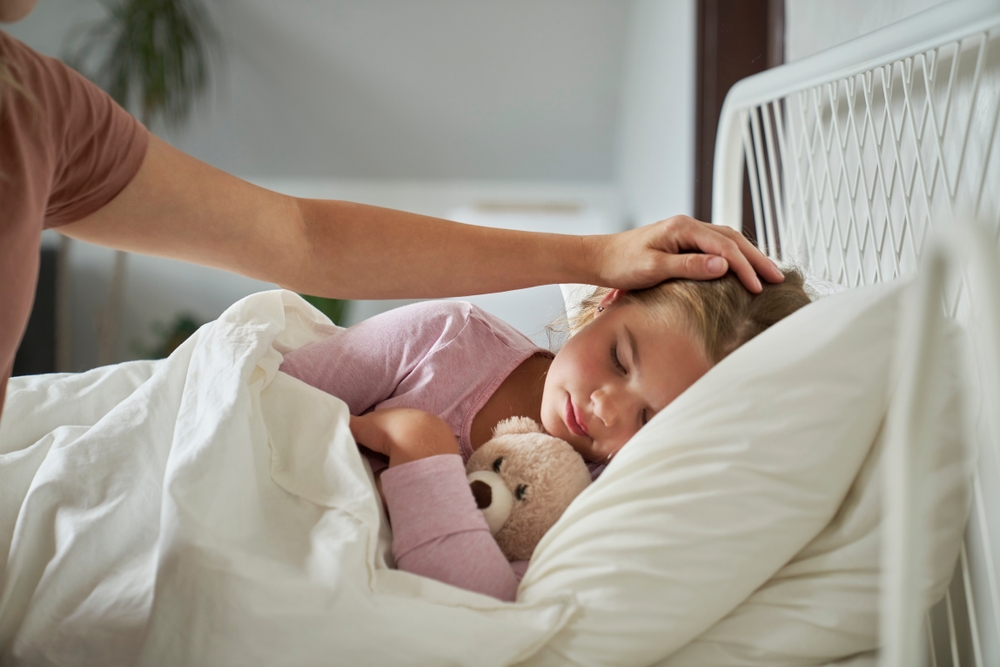Flu season can be a challenging time for families, especially when it strikes your little one. As parents, it’s natural to feel concerned when your child falls ill, but there are ways to manage their symptoms at home and ensure they stay as comfortable as possible. Understanding the symptoms of the flu, knowing the necessary supplies, and preventing complications like dehydration can help you navigate this tough time. Here’s a guide from AIM Group in New York on how to treat your child’s flu symptoms at home, when to seek medical attention, and how to keep the rest of the family safe.
Recognizing Flu Symptoms in Children
The flu often starts suddenly and may include a combination of the following symptoms:
- Fever: Often high, reaching up to 103°F or higher.
- Chills: Along with the fever, your child may feel cold and experience shivering.
- Cough: A dry cough that may become more persistent as the illness progresses.
- Sore Throat: Your child may complain of pain or discomfort in their throat.
- Runny or Stuffy Nose: Nasal congestion often accompanies the flu.
- Muscle Aches: Your child may report feeling sore, weak, or achy.
- Fatigue: Exhaustion and lethargy are common, and your child may not want to move around much.
- Headache: A headache can occur along with fever and muscle aches.
- Nausea, Vomiting, and Diarrhea: Some children may experience stomach issues along with the respiratory symptoms.
If your child displays these symptoms, it’s likely they are dealing with the flu. While most cases can be managed at home, it’s important to keep an eye out for complications or signs that more serious medical care may be needed.
Essential Supplies for Flu Care at Home
To make your child’s recovery process smoother, it’s helpful to have a few basic supplies on hand:
- Thermometer: To monitor your child’s temperature and track fever.
- Fever-Reducing Medication: Over-the-counter medications like acetaminophen (Tylenol) or ibuprofen (Advil) can help lower fever and alleviate discomfort. Always follow the dosing instructions and consult with your pediatrician before giving any medication.
- Tissues: For wiping a runny nose or cleaning up after coughing.
- Humidifier: A cool-mist humidifier can help ease congestion and soothe a sore throat, making it easier for your child to breathe.
- Fluids: It’s crucial to keep your child hydrated. Stock up on water, clear soups, and electrolyte drinks (like Pedialyte). Popsicles can also help hydrate while soothing a sore throat.
- Saline Nasal Spray: This can help relieve nasal congestion and help your child breathe easier.
- Cough Syrup or Lozenges: For older children, lozenges or cough syrup can help calm a cough. Be sure to check the age guidelines and consult your pediatrician.
- Comfortable Bedding: Soft blankets and pillows, as well as a comfortable space for your child to rest, can aid in recovery.
- Thermal Pads: If your child has aches or muscle pain, thermal pads or warm compresses can help relieve tension.
Preventing Dehydration
Flu symptoms can lead to dehydration, particularly if your child has a fever, is vomiting, or has diarrhea. Ensuring that your child stays hydrated is one of the most important aspects of flu care.
How to Prevent Dehydration
- Offer Fluids Regularly: Even if your child isn’t particularly thirsty, encourage small sips of water, clear liquids, or an electrolyte solution (like Pedialyte) every 30 to 60 minutes. Offering fluids frequently can help prevent dehydration before it starts.
- Use Popsicles: If your child is reluctant to drink, offer them popsicles or ice chips. These can help provide hydration while also soothing a sore throat.
- Monitor Urine Output: Keep an eye on the frequency and amount of urine your child produces. A decrease in urination may indicate dehydration.
- Avoid Caffeinated or Sugary Beverages: Drinks like soda or fruit juices can actually contribute to dehydration. Stick to clear liquids or specially formulated drinks that are designed to hydrate.
Signs of Dehydration
Knowing the signs of dehydration can help you act quickly if your child isn’t getting enough fluids. Watch for these symptoms:
- Dry mouth or tongue
- Sunken eyes
- Fewer wet diapers or trips to the bathroom (in older children, fewer urinations)
- Irritability or lethargy
- Dizziness or confusion
- Dark yellow urine
If your child is showing signs of dehydration, it’s important to seek medical attention promptly.
When to Seek Medical Attention
While the flu can usually be managed at home, there are certain situations where you should seek medical help. Contact your pediatrician or go to the emergency room if:
- Your child has trouble breathing: Rapid, shallow breathing or shortness of breath can be signs of a more serious flu complication.
- Your child’s fever is very high: If your child’s fever rises above 103°F (39.4°C) and does not respond to fever-reducing medication, seek medical attention.
- Your child is extremely lethargic or unresponsive: If your child is hard to wake or seems unusually tired and unresponsive, this could be a sign of dehydration or another complication.
- Your child has a severe headache or neck stiffness: These symptoms, particularly when paired with a fever, can be signs of a more serious illness, such as meningitis.
- Signs of dehydration: As mentioned earlier, if your child shows signs of severe dehydration, it’s important to get help quickly.
Keeping the Rest of the Family Safe
While your main concern is caring for your child, it’s also essential to protect the rest of your family from the flu. Flu is highly contagious, and it’s easy for it to spread quickly within the household.
- Practice Good Hygiene: Make sure everyone in the house washes their hands frequently with soap and water, especially after caring for the sick child. Use hand sanitizer if soap and water are unavailable.
- Disinfect Common Areas: Regularly clean surfaces that are commonly touched, such as doorknobs, light switches, and bathroom faucets, with disinfectant.
- Encourage Coughing Etiquette: Teach your child to cough into their elbow or a tissue to minimize the spread of germs.
- Keep Distance: If possible, try to isolate your sick child in a separate room and limit contact with other family members.
- Flu Vaccination: If you haven’t already, consider getting flu shots for other members of the family to prevent the flu from spreading further.
AIM Group Offers Primary Care & House Calls In East Hills, NY
Treating your child’s flu symptoms at home can be manageable if you have the right supplies, focus on hydration, and keep an eye out for signs of dehydration or other complications. Always trust your instincts, and don’t hesitate to contact your child’s pediatrician if you have concerns. By following these steps, you can help your child recover comfortably while keeping the rest of the family safe and healthy.
At Advanced Internal Medical Group in East Hills, NY we have 40 years of experience providing care with over 20 services in primary care, house call appointments, and more. To learn more about any of our services, call 516-352-8100 to speak with one of our team members.

